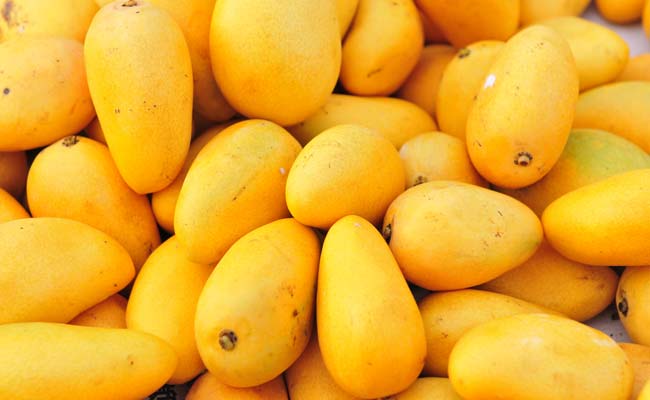
EU lifts seven-month-long ban on Indian mango imports
Sai Nikesh D | The Dollar Business
The European Union (EU) on Tuesday, decided to lift a seven-month-long ban on mango imports from India and the measures to this effect will come into implementation before the start of next imports season in March 2015. This lift on ban of imports gains importance in the light of decision taken by the EU in May, 2014 over the ban of few commodity imports from India, which it said will last till December, 2015. The decision was taken following the EU Plant health Standing Committee’s voting on Tuesday. After a meeting, it was announced that, "India has provided assurances appropriate measures are now available to ensure the export of mangos are free from quarantine pests such as fruit flies, not known to occur in the Union." The latest improvement was welcomed by Britain. According to the sources, Britain's Environment Minister Lord de Mauley said, “The EU ban was due to remain until December 2015, but today's vote shows that the hard work of the Indian authorities has paid off." British High Commissioner in India James Bevan was also quoted to have said that this is great news for the UK-India and EU-India trade relationship, especially for Indian exporters and UK consumers. The British government worked hard to have the ban lifted and this includes sending an expert to provide technical training, prior to the EU inspection in September, he added. In May, 2014, the EU had blocked shipments of Alphonso mangoes into UK, after the Brussels authorities found consignments infested with fruit flies. However, in September audit, EU's Food and Veterinary Office found significant improvements in quality. Before May, in April, 2014, the EU had prohibited the imports of certain vegetables and fruits from India into the EU territory, in view of pest concerns. This decision was taken due to a high number of consignments being intercepted at arrival in the EU with quarantine pests, mainly insects, like non-European fruit flies, says the report of Standing Expert Committee on Plant Health, released by EU in 2014. Though the prohibited commodities represent less than 5 % of the total fresh fruits and vegetables imported into the EU from India, the potential introduction of new pests could pose a threat to EU agriculture and production, said the Commission’s report, adding that such pests were found in 207 consignments of fruits and vegetables from India imported into the EU, in 2013. According to National Horticulture Board, Europe’s acceptance of different varieties is greater because of a large demand from Asian immigrant groups. Fifty-four percent of European Union imports enter during the periods May to July and November to December, with peak imports in June. Transportation costs are also not as big a factor in exporting mangoes to the European Union as in exporting to the United States market, the Board says. India ranks first among world’s mango producing countries accounting for about 50% of the world’s mango production. Other major mango producing countries include China, Thailand, Mexico, Pakistan, Philippines, Indonesia, Brazil, Nigeria and Egypt. According to the data from National Horticulture Board, India, an increasing trend has been observed in world mango production averaging 22 million metric tonnes per year. Worldwide production is mostly concentrated in Asia, accounting for 75% followed by South and Northern America with about 10% share.
This article was published on January 21, 2015.






 to success.
to success.